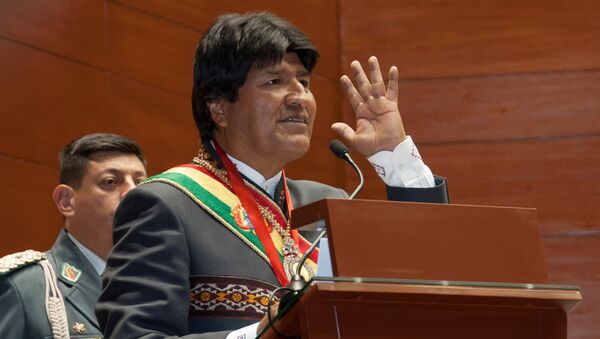The MAS party made its decision at a December 17 congress. Morales, the country's first indigenous president, said, "If the people decide it, Evo will continue," AFP reports.
But the people decided not to by a narrow margin, 51% against to 49% in favor, when the question of allowing a constitutional amendment to let Morales run for a fourth term in 2019 was put to them. Morales was first elected in 2005 and re-elected in 2009. A constitutional court allowed him in 2013 to run for a third term, which he won the next year. His current term expires in early 2020.
Bolivia's constitution establishes a two-term limit on presidents.
The MAS congress has recommended "four legal alternatives" that could allow Morales to run despite the constitutional limit, AFP reports. The first two involve other constitutional reform initiatives; a third would have Morales renounce office before the election, so he technically would not have served three terms completely; the last imagines a reinterpretation of the constitution.
Morales has been very popular in general during his years as president. He has worked to include the country's indigenous peoples in decision-making and to redistribute the country's resource wealth, and has been a vocal critic of US policy in Latin America, particularly its long, violent war on drugs. Bolivia still suffers from widespread poverty and is in the grips of an ongoing water crisis.
An Ipsos poll earlier in December found that Morales's popularity had suffered somewhat, but remained at 49%, AFP reports. This year, he has faced accusations that he did favors for and took kickbacks from a Chinese engineering company operating in Bolivia that employed a former girlfriend of his.




